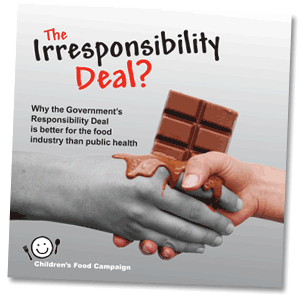The Senate roll-call votes on farm bill amendments
In the vote-a-rama of the last couple of days, the Senate passed these farm bill amendments with roll-call votes (other amendments were passed or rejected by voice votes):
- No. 2439; To limit the amount of premium subsidy provided by the Federal Crop Insurance Corporation on behalf of any person or legal entity with an average adjusted gross income in excess of $750,000 with a delayed application of the limitation until completion of a study on the effects of the limitation.
- No. 2438; To establish highly erodible land and wetland conservation compliance requirements for the Federal crop insurance program.
- No. 2363 As Modified; To ensure that extras in film and television who bring personal, common domesticated household pets do not face unnecessary regulations and to prohibit attendance at an animal fighting venture.
- No. 2295; To increase the amounts authorized to be appropriated for the designation of treatment areas.
- No. 2454; To prohibit assistance to North Korea under title II of the Food for Peace Act unless the President issues a national interest waiver.
- No. 2293; To limit subsidies for millionaires.
- No. 2382; To require the Federal Crop Insurance Corporation to provide crop insurance for organic crops under similar terms and conditions to crop insurance provided for other crops.
- No. 2309; To require a study into the feasibility of an insurance product that covers food safety recalls. No. 2238; To require more frequent dairy reporting.
- No. 2370; To encourage the purchase of pulse crop products for school meals programs.
- No. 2445; To strengthen rural communities and foster the next generation of farmers and ranchers.
- No. 2167; To provide payment limitations for marketing loan gains and loan deficiency payments.
- No. 2190 As Modified; To require Federal milk marketing order reform.
I won’t go through all of the rejected amendments, but did notice this one:
- No. 2289; To reduce funding for the market access program and to prohibit the use of funds for reality television shows, wine tastings, animal spa products, and cat or dog food.
Now why would the Senate vote to retain market access program funds for such things? Taxpayer support of promotion of cat and dog food? How did we miss that one when when my co-author and I were writing Feed Your Pet Right, our analysis of the pet food industry.
And wine tastings, anyone?
But to get to a more important rejection: Senator Gillibrand’s amendment to protect SNAP from budget cuts:
- No. 2156 As Modified; To strike a reduction in the supplemental nutrition assistance program and increase funding for the fresh fruit and vegetable program, with an offset that limits crop insurance reimbursements to providers.
The rejection of this proposal gets us into issues related to the cozy arrangement between anti-hunger advocates and pro-commodity advocates to vote for each other’s funding (translation: logrolling). Does this rejection mean that the arrangement is breaking down under budget-cutting pressures? Or does it simply reflect an agreement that a reduction in SNAP is the quid pro quo for removing direct payments and setting some caps on commodity benefits?
Senator Ron Johnson (Rep-Wisconsin) has an interesting take on the logrolling questions. He filed a motion to send the farm bill back to committee to divide it into two separate bills, one for food assistance and the other for farm supports.
When Congress debates legislation to spend nearly $1 trillion, we need to be honest with the American people about what we’re doing. This isn’t a farm bill. It’s a welfare bill…We should be clear about how much we are spending and why we are spending it – and we ought to give Senators the opportunity for a straight up or down vote on two different proposals that have little in common.
…If Senators want to spend $800 billion on Food Stamps, or nearly $200 billion on farm programs, let them say so with a clean vote – rather than combining them into an all-or-nothing package that passes with a minimum of debate and scrutiny.
Want to take bets on how far his motion gets? [Not far: the Senate rejected the motion this morning, 59 to 40]
The Senate is voting on more amendments today. More to come.



